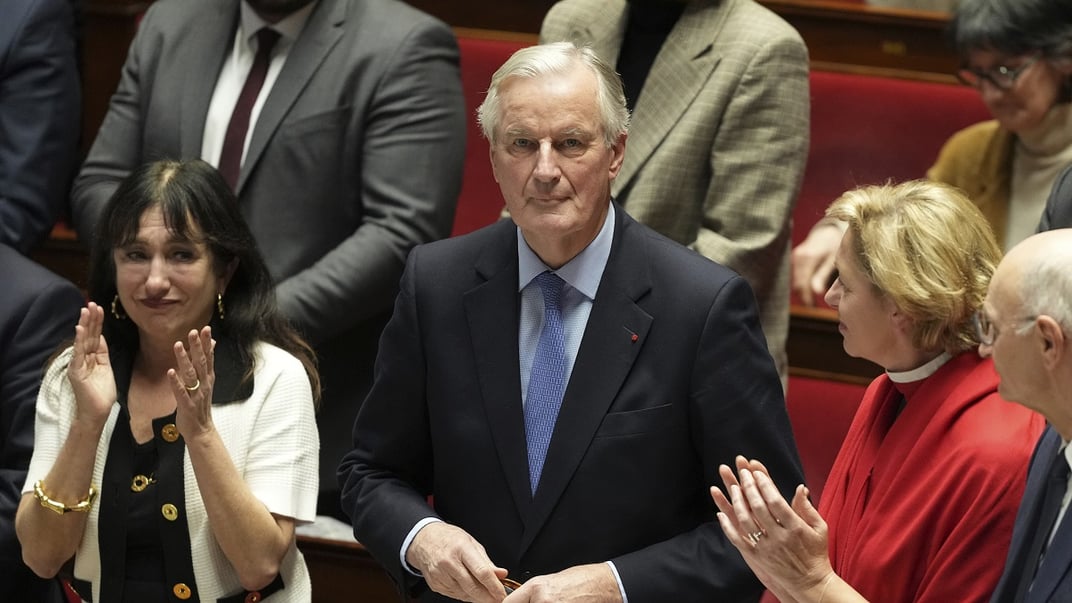The French Parliament has dismissed the government for the first time since 1962.

This is reported by France 24.
A total of 331 out of 574 members of the lower house of parliament voted in favor of the no-confidence motion against Barnier's government. A majority of 288 votes was required for the decision to pass.
Prior to this, the left alliance "New People's Front" and the far-right party "National Rally" promised to overthrow Barnier's government after it passed an unpopular budget bill for 2025 without a final vote in parliament.
The budget proposal includes cuts of €60 billion to reduce the deficit. Barnier admitted that the budget was "not perfect," but added that he had only "15 days" to prepare it.
Now, France risks ending the year without a stable government or a budget for 2025.
Furthermore, France 24 highlights that the fall of the French government and the inability to pass the budget may complicate support for Ukraine, despite repeated promises from President Emmanuel Macron to assist Kyiv "as much as needed."
Defense Minister Sébastien Lecornu confirmed in an interview with Le Parisien that the resignation of the government would impact France's support for Ukraine. He explained that France is transferring old weapons from its stockpiles to Ukraine, which need to be replenished with new equipment.
"If we slow down the orders for new equipment, there will be a slowdown in supplies for Ukraine," Lecornu noted.
According to Reuters, citing various sources, President Emmanuel Macron is eager to quickly appoint a new prime minister. On his list are leftist Bernard Cazeneuve, former minister Xavier Bertrand, and Lecornu.
Macron may also ask Barnier and his ministers to temporarily remain in their positions until he finds a prime minister capable of garnering sufficient bipartisan support for passing the budget. Macron's opponents may also vote to oust one prime minister after another.
The French far-left has already called for Macron to resign and initiate early presidential elections. Far-right leader Marine Le Pen has not called for the president's resignation but added that Macron should make that decision himself.
Recall that at the beginning of November, the ruling coalition in Germany collapsed. Now, early parliamentary elections are expected to take place in 2025.